Why Apple no longer innovates
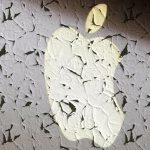
The more I ponder Apple's Beats acquisition, the less sense it makes. Buying big well-known brands that compete with yours is usually a bad idea -- worse when the acquirer owns no foreign brands. Extinguishing the big name, as Microsoft does with Nokia, is marketing murder. There's no place for the Beats brand in the Apple lexicon. The gun is drawn and ready to fire.
What I do see is another sign that Apple has lost its way. Tim Cook is a very able CEO, but as stated previously he is Star Trek's Spock without Captain Kirk (Steve Jobs). Cook's approach to business logistics, while brilliant, unmakes Apple. Beats is an acquisition that is off-key -- out of tune with the culture that made the fruit-logo company great. As such, on this Thursday in May, comes my confession. I was wrong five years ago in post "Why Apple succeeds, and always will". That company is gone.
Apple iPhone and Samsung Galaxy owners won’t switch brands
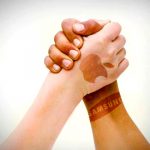
Samsung and Apple don’t have to worry about users defecting to each other after a new survey suggested that other manufacturers like HTC and Huawei could take advantage of the gap.
Qriously, a London-based startup, surveyed a sample of 2,440 existing iPhone owners and the same number that own Samsung smartphones in order to ascertain how loyal the two sets of consumers are to the respective brands.
Sorry Samsung, I'm going back to the iPhone
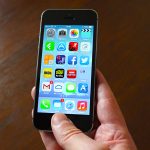
I owned an iPhone 3GS for a couple of years, and loved it. But when the time came to replace it, instead of upgrading to an iPhone 4S, I decided to go for Samsung’s new Galaxy S II instead. The S II’s reviews were glowing -- many calling it an iPhone 5 killer (suggesting it was already way better than whatever Apple did next) -- and having played around with it in store, I was sold. Apple was the past, Samsung was the future, and this was the phone for me.
When the S III came out, I duly upgraded to that -- well, why wouldn’t? I’ll be honest, the beefed up size was a little off-putting at first, but the phone was great; a truly worthy successor. Recently though the device has started to misbehave, turning itself off without warning, and requiring constant charging, clear signs it was time to upgrade again. Going for the Galaxy S4 would have been the obvious choice, or maybe -- like many of my colleagues here at BetaNews -- I could have switched to a Windows Phone. The Lumia 925 is certainly appealing. The truth though is there was only one phone I really, really wanted and yesterday it arrived. A shiny new iPhone 5s in Space Gray.
5 things you might not think Apple should be thankful for
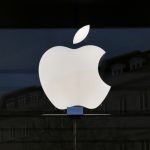
Today, Americans celebrate Thanksgiving and Hanukah, a rare occurrence they overlap. We reflect on the things we feel -- or should be -- grateful. Ahead of the holiday meal I served up "13 things for which Google gives thanks" and colleagues Wayne Williams and Alan Buckingham "5 things to be thankful for in Windows 8.1" and "5 products I'm thankful for", respectively. I would be remiss ignoring Apple.
The fruit-logo company is unique in techdom, inventing or reinventing several hugely successful product categories. Most companies have one- or two-hit wonders. Apple has a string of smash hits, like the rarest of iconic musicians. The Beatles come to mind, because of their 50th-anniversary and name shared -- you know, Apple Records. The many things for which the company should be thankful are obvious, so let's just dispense with those and get to items other list-makers, if there are any, likely will overlook. I present Apple's thankful things from least to most important.
The most popular stories on BetaNews this past week - November 17 -- 23

Sony PlayStation 4 hit the stores and Brian not only took a look at the brand new console, but also cracked open the case and slipped a larger hard drive inside. Brian wasn't alone in his love of the PS4, more than a million people also bought a console on the day of launch. But not everyone was happy as many units were found to suffer from a Blue Light of Death problem that rendered them unusable. Raspberry Pi was also celebrating its sales figures as more than two million were shifted since its launch last year.
In a rare show of unity, Microsoft and Google joined forces to help tackle the problem of online child pornography. At the same time, Microsoft took its Scroogled campaign to a new level by releasing merchandise (although Joe was impressed). Elsewhere online, Twitter introduced Twitter alerts to the UK and Ireland to help provide people with critical information in an emergency.
Apple wins $290 million from Samsung in damages following retrial

One year ago, Apple was awarded a whopping $1.05 billion in damages from Samsung after the South Korean company was found guilty in a US court of copying elements from the iPhone and using them in some of its own handsets. Infringed features included how the devices displayed text and icons, the bounce-back response found in iOS, and the tap-to-zoom, one-finger-to-scroll, two-to-pinch, and zoom navigation features. The award was so high because the jury found that Samsung had willfully stolen design elements from Apple.
Earlier this year the US District Judge who presided over the trial, Lucy Koh, upheld close to $640 million of the damages that Apple had been awarded, but said that calculations made by the original jury had errors in it and ordered a retrial for the remaining amount.
Samsung now selling over two and a half times as many smartphones as Apple
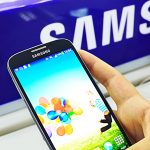
Two days ago IDC released its latest Worldwide Mobile Phone Tracker report, showing growth for both Android and Windows Phone and drops for iOS and BlackBerry.
Today Gartner provides details on worldwide mobile phone sales to end users, with the big news being that smartphones accounted for 55 percent of all mobile phone sales in the third quarter of 2013.
Apple wins patent case that could lead to a ban on certain Samsung products

The Apple and Samsung battle continues to rumble, and less than a week after a proposed ban on the sale of iPhones and iPads was overturned, another ruling has -- at least for the time being -- gone Apple's way. The US ITC has upheld a previous ruling dating back to 2011 that found Samsung has infringed various Apple patents, potentially leading to a US ban on various devices from the South Korean company.
The ruling found that Samsung had violated two patents relating to Apple's iPhone. The first patent (often referred to as the "Steve Jobs patent") relates to the use of a touchscreen interface as means of interacting with a device using one or more fingers. The second patent relates to the design of an audio socket that can determine the type of microphone or headset that has been plugged into it.
Obama overturns ITC ban on the sale of various iPads and iPhones
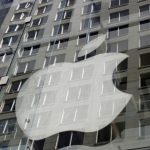
In a letter to the International Trade Commission chairman, the Honorable Irving A Williamson, the Obama administration vetoes an earlier ITC ruling that was due to block the sale of a number of Apple products. The original ruling came in June and was to prevent the sale of various products including certain models of the iPhone 4 and the iPad 2.
The letter from Ambassador Michael Froman explains that having reviewed the information surrounding the patent dispute between Apple and Samsung, he had decided to "disapprove the USITC's determination to issue an exclusion order and cease and desist order". Under section 337 of the Tariff Act of 1930 the President is obliged to evaluate decisions made by the Commission during a 60-day review period, and in this instance the authority was passed to the USTR.
As iPhone market share peaks, there's one direction to go
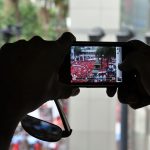
You will reads lots of dribble today about Samsung first quarter phone gains compared to Apple. Most will ignore something fundamental to the numbers: What they represent. IDC and Strategy Analytics separately put out data, for shipments, which mean handsets going to carriers, dealers and other sellers. That's very different from sales to businesses and consumers, Gartner's measure and the more accurate one (that data isn't ready yet).
For few quarters is the difference between shipments and sales likely to be so pronounced, actually even more so in Q2. Apple comes off its second full quarter of iPhone 5 sales and global distribution, and so shipments into the channel, nearly complete. Meanwhile, Samsung ramps up for Galaxy S4's launch, while achieving full global availability for the S III. Second quarter is the more likely bloodbath for Apple, but actual sales will foreshadow much. Still, shipments hint something now, and iPhone faces serious challenges.
Samsung Galaxy Note 8 arrives April 11, but something's missing
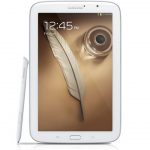
What's wrong with Samsung? That's the question I asked in newsroom group chat today after seeing specs for Galaxy Note 8.0. Screen resolution diminishes the otherwise noteworthy feature list. Sorry, but 1280 by 800 is inadequate -- little more than matchup to Apple's iPad mini, which is similar size. For a company that makes such great-looking displays, lower-res is an endemic problem across Samsung's entire tablet line.
I really expected more from Galaxy Note 8.0, which as the same suggests has an 8-inch screen; iPad mini is 7.9. Samsung unveiled the tablet in February, and I wrote the news story. But in the rush of Mobile World Congress news didn't consider screen resolution, in part on possibility specs would change. The electronics giant has done it before, announcing one thing but shipping something slightly different months later.
Samsung and Sprint dim iPhone 5's launch-sales glow
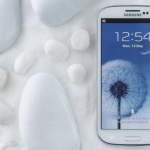
Only T-Mobile can save iPhone now. Apple's U.S. market share, as measured by smartphone operating system, retreated in February, according to data Kantar Worldpanel ComTech released today. With the iPhone 5 initial release sales glow gone, and a rapidly saturating market for a product feature set now three models old, share isn't sustainable. Meanwhile, Android gains -- as does Windows Phone.
iPhone share, based on sales, fell to 43.5 percent for the three months ended in February. That's down from 45.9 percent in January and from 47 percent a year earlier. By comparison Android is up -- to 51.2 percent from 49.4 percent sequentially and 45.4 percent annually. By the same reckoning, Windows Phone rose to 4.1 percent from 3.2 percent and 2.7 percent share.
Why Apple fears Samsung Galaxy S IV

Early this evening, during a New York soiree, Samsung launched the Galaxy S IV smartphone. The venue is atypical. The South Korean electronics giant usually starts from home, offering new smartphones globally before reaching the United States. Now, in a dramatic change, a flagship Galaxy phone lands on Apple's home turf first.
The companies are in a struggle for smartphone supremacy, with Samsung leading in most countries. With one glaring exception: The United States. Today's venue clearly marks the South Korean manufacturer's intentions to take the share lead from its American rival.
Samsung is the new Apple
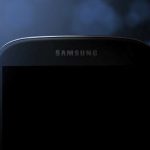
One measure of any brand's success is how much people talk about it. By that reckoning, Apple's star is fallen, while Samsung's rises. Consider the amount of rumors the past month or so about Galaxy S IV, which launches this week, and contrast that against near silence about anything Apple. Turn back the clock a year and you'll see modest buzz about the S3 but ongoing Apple rumors that stole the thunder from the Consumer Electronics Show, Mobile World Congress and just about every single new mobile product launch. (Yet this year, Apple efforts to overshadow CES failed.)
Then there was the noise, noise, noise from Apple's patent lawsuit against Samsung, which hundreds of bloggers and journalists used to repeatedly label the South Korean company the world's worst worrisome copycat. In the end Samsung's image is no worse for wear, while Apple rumors wear thin. The most prominent recent one is about a watch. For the wrist? What Citigroup analyst Oliver Chen calls a $6 billion business for Apple. Let me make that clear, because shorthand lacks the impact: $6,000,000,000! That's more than iPod generated in fiscal 2012 ($5.6 billion). Yeah, right.
Apple holds on to U.S. Smartphone subscriber lead
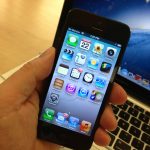
In the highly saturated U.S. smartphone market, Apple's dominance grew, while iPhone nipped upwards towards Android, for the three months ended in January, according to comScore. The analyst firm, unlike most of its competitors, measures actual subscriber share rather than number of units shipped. Like Gartner's counting actual sales, comScore gives a clearer view of real-world dynamics.
During iPhone 5's first full three months of sales, Apple's share reached 37.8 percent -- up from 36.3 percent in December and 34.3 percent in October. By comparison, second-place Samsung nudged up to 21.4 percent share, from 21 percent sequentially and 19.5 percent for the same three months. HTC, Motorola and LG followed, with respective shares of 9.7 percent, 8.6 percent and 7 percent. All three lost share from December, with LG up ever-so slightly from October. Motorola's loses strongly suggest that at Verizon, carrier with the highly-visible Droid line of smartphones, subscribers shift allegiance to other brands. Good thing Moto has a new evangelist.
Recent Headlines
Most Commented Stories
BetaNews, your source for breaking tech news, reviews, and in-depth reporting since 1998.
© 1998-2025 BetaNews, Inc. All Rights Reserved. About Us - Privacy Policy - Cookie Policy - Sitemap.